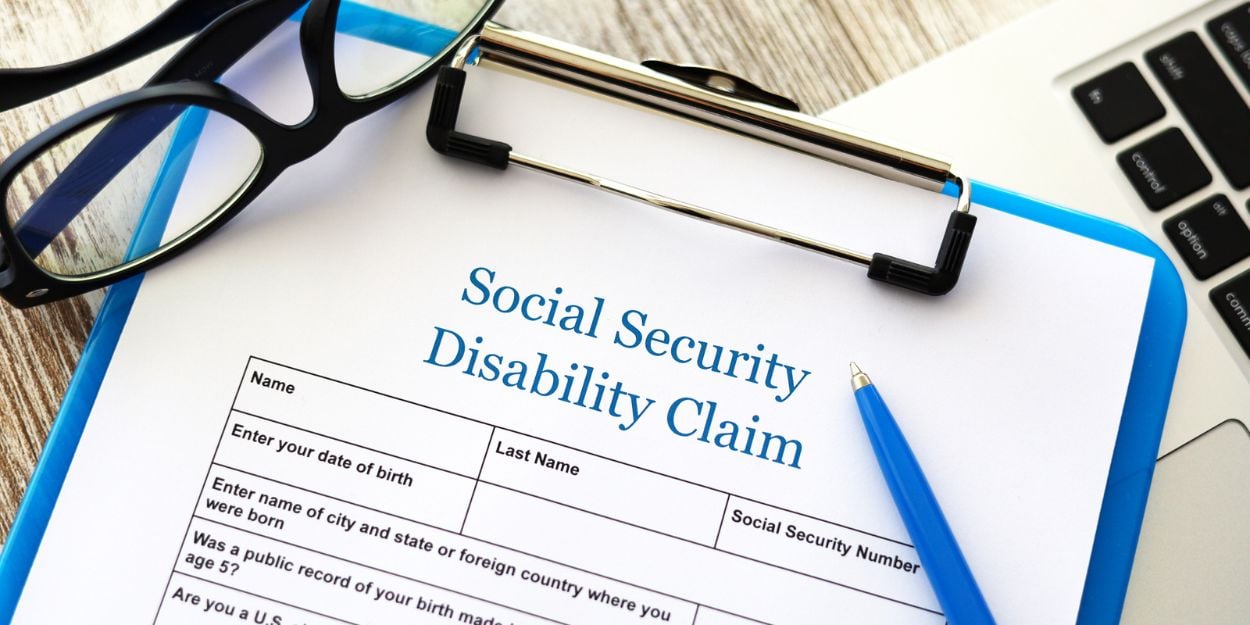The concept of disability benefits through the Social Security program can often be complex and misunderstood, particularly when it comes to durations of benefit payment.
But, can I get temporary social security disability benefits?
In this article, we’ll explore what you need to know about Social Security Disability Benefits (SSDB), focusing specifically on the concept of temporary versus permanent benefits, and offer insights into what alternatives might exist for temporary situations.
What Are Social Security Disability Benefits?
Social Security Disability Benefits are designed to provide income to individuals who are physically restricted in their ability to work due to a chronic or long-term medical condition.
The system is primarily composed of two programs: Social Security Disability Insurance (SSDI) and Supplemental Security Income (SSI).
SSDI is funded through payroll taxes and is available to individuals who have worked enough years and contributed to the Social Security system.
SSI, on the other hand, is funded by general tax revenues and aids disabled individuals who have limited income and resources.

Can I Get Temporary Social Security Disability Benefits?
First, it’s essential to define what is meant by ‘temporary’ versus ‘permanent’ disability benefits. Temporary benefits refer to financial assistance provided for a short duration, potentially due to a medical condition that is expected to improve.
Permanent disability benefits, on the other hand, apply to more severe, long-lasting medical conditions.
Social Security does not typically offer benefits for short-term or partial disability; their programs are intended for individuals who are fully disabled for a year or more, or who have a condition expected to lead to death.
Common Misconceptions About Social Security Disability
Many believe that Social Security provides temporary or partial benefits, but this is not the case. Social Security’s benefits are targeted at long-term, severe disabilities.
Understanding this can prevent unnecessary applications and help individuals find appropriate sources for the support they need during shorter periods of disability.
Why Social Security Only Offers Long-Term Benefits
Social Security defines disability very specifically: the inability to engage in any substantial gainful activity due to a medically determinable physical or mental impairment expected to last at least one year or result in death.
This strict definition underscores the program’s design to assist those most in need, helping those who cannot work at all, rather than those temporarily sidelined.
Alternatives to Social Security for Temporary Disability
For those who find themselves temporarily unable to work, there are a few alternatives:
- Workers’ Compensation: This might be available if your disability is work-related.
- Private Disability Insurance: Often provided as a part of employment benefits packages, this can cover a portion of your salary if you’re temporarily unable to work due to illness or injury.
- State Temporary Disability Programs: Some states offer their own temporary disability benefits. Programs vary by state, so local welfare office consultation is recommended.
Understanding Expedited Payments
In specific dire need cases, the Social Security Administration offers something called “Expedited Payments,” which might be granted to those facing immediate financial hardship due to their disability.
These are typically only given if the applicant is likely to be approved for SSDI or SSI and has very pressing financial needs.
Preparing to Apply for Social Security Disability
Applying for SSDI or SSI is a process that requires careful preparation. Applicants need comprehensive medical records, a detailed work history, and personal identification.
When applying, ensure that all forms are filled out entirely and accurately, as incomplete applications can be quickly denied.

It’s not uncommon for initial SSD applications to be denied. However, there is a structured appeals process that can be followed. Often, a denial is due to lack of proper evidence or paperwork errors.
On occasion, legal representation during the appeals process can help clarify and provide necessary documentation to overturn an initial denial.
Frequently Asked Questions
Can I work while receiving SSD benefits?
Yes, you can work while receiving SSD benefits. However, your earnings must not exceed the Substantial Gainful Activity (SGA) limit, which is adjusted annually.
How long does it take to get Social Security Disability after applying?
The processing time for Social Security Disability benefits can vary but typically ranges from three to five months. Delays may occur based on the need for additional medical evidence or a disability hearing.
What is the SSDI “Trial Work Period”?
The SSDI “Trial Work Period” allows beneficiaries to test their ability to work for at least nine months without losing benefits, regardless of earnings, as long as you report your work activity.
Are there any disability benefits available for short-term conditions?
No, Social Security does not offer disability benefits for short-term conditions. Disability benefits through Social Security are intended for conditions expected to last at least one year or result in death.
What happens to my SSD benefits if my disability is no longer considered permanent?
If your condition improves and you are no longer considered disabled, your SSD benefits will be stopped. The SSA conducts periodic reviews to assess the status of beneficiaries’ health conditions.
Conclusion
Understanding the boundaries of Social Security Disability benefits can guide you towards the right kind of support during times of need.
While SSDI and SSI do not cover temporary disabilities, there are other resources that can help bridge financial gaps during shorter periods of incapacity. Always seek the most accurate and current information from trusted resources.
Meta Description: “Explore the facts about temporary Social Security Disability benefits. Learn eligibility criteria, application process, and alternatives for short-term financial support.”


 Tags:
Tags:










